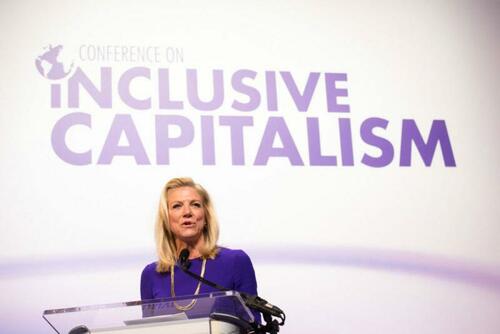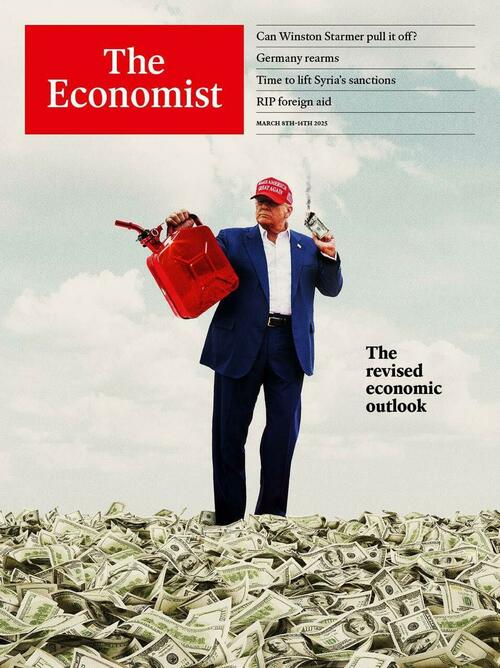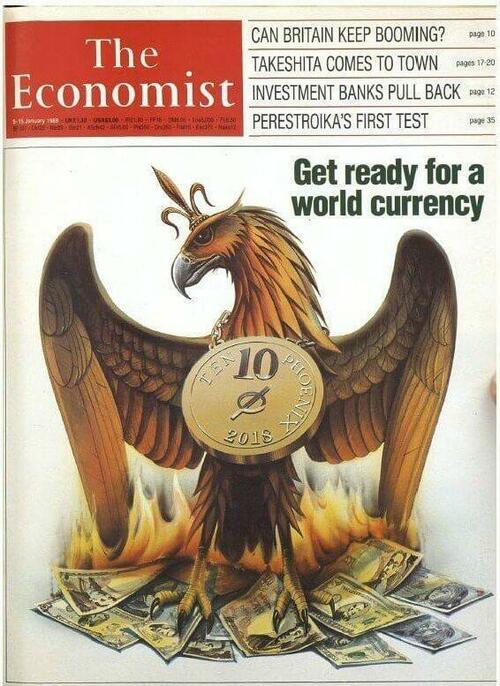British magnate Lynn Forester de Rothschild is considering the sale of a long held family stake in The Economist magazine. Rothschild has hired advisers at Lazard to explore selling a 20% stake for as much as £400m, according to Bloomberg.
Any sale would represent the most dramatic change in ownership for the 182-year-old weekly since 2015, when British education publisher Pearson sold the majority of its 50% stake alongside its sale of The Financial Times. The magazine was founded in 1843 and has enjoyed Rothschild investment ever since.
However, overall readership has been in decline for at least a decade, which is the likely reason for the sale of shares by longtime benefactors. In 2015 The Economist maintained an audience of 1.6 million; that has fallen to 1.2 million in 2025, similar to reader numbers the outlet held in the early 2000s.
The Economist has grown increasingly and openly left-leaning in that time period, with a distinct hostility towards the Trump Administration. Headlines such as “Donald Trump Is Unpopular. Why Is It So Hard To Stand Up To Him?”, “The Sinister Brilliance Of Donald Trump’s Security Theatre” and “Donald Trump’s Awful Trade Policy Will Outlast Him” have become a common theme for the publication.
It should come as no surprise, but The Economist is also aggressively globalist in its ideological bent with numerous articles warning of potential doom should the current order be disrupted by populism, international trade restrictions or a focus on domestic production over outsourcing. They also continue to defend mass immigration to the west from third world nations, exploiting the common fallacies used by woke progressives, including the claim that western economies cannot survive without population growth sourced from migration.
These arguments commonly use GDP expansion data as “proof” that mass immigration improves western economies. In reality, GDP in the west is calculated to include a large percentage of government spending. As migrants enter the US or Europe, around 60% (or more) immediately tap into government subsidies and welfare programs. This increases government spending, and thus, increases GDP (directly and indirectly).
Federal and state government spending in the US accounts for at least 30% of total national GDP. This is why states like California, with their open borders and sanctuary status, seem to enjoy superior GDP numbers – They spend more taxpayer dollars on illegal immigrants, thereby driving up their GDP.
It’s not legitimate economic improvement, it’s wealth redistribution on a global scale. It’s a scam. This is just one of the many false narratives promoted buy The Economist over the years.
The Economist is also well known for its creepy predictive annual covers, which some people believe are rife with symbolism and secret messages. Others suggest the magazine is a platform for globalists like the Rothschilds to test the waters on Orwellian policies. Take a look at this cover from 1988 stating “Get ready for a world currency” (2018 just happened to coincide with the global proliferation of digital currencies and crypto):
As readership in corporate media dwindles and more people turn to alternative sources on the web, legacy publications like The Economist will face numerous obstacles to growth in the next five years. The Rothschilds are well known for their “uncanny” ability to jump ship on bad investments before a greater plunge. It would appear that The Economist’s long relationship with the family is no longer enough to keep them interested.
Loading recommendations…





















